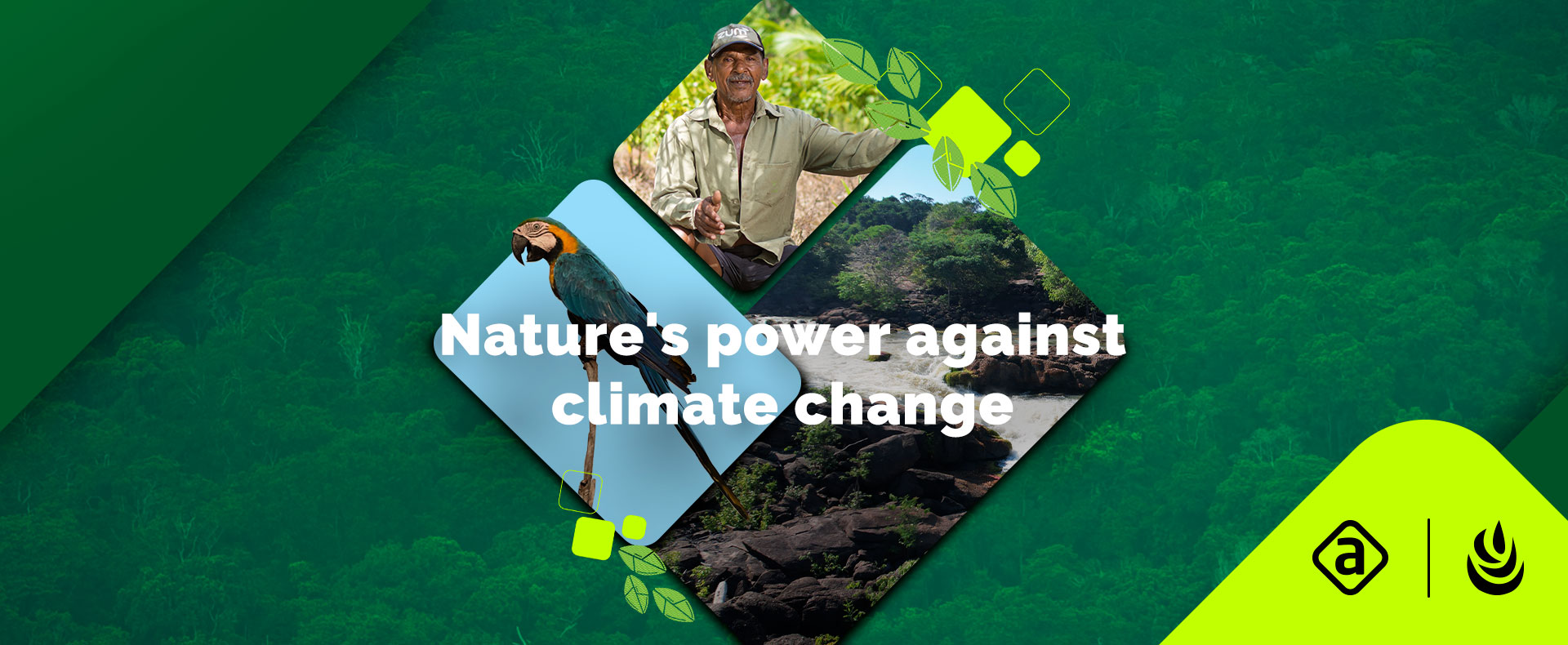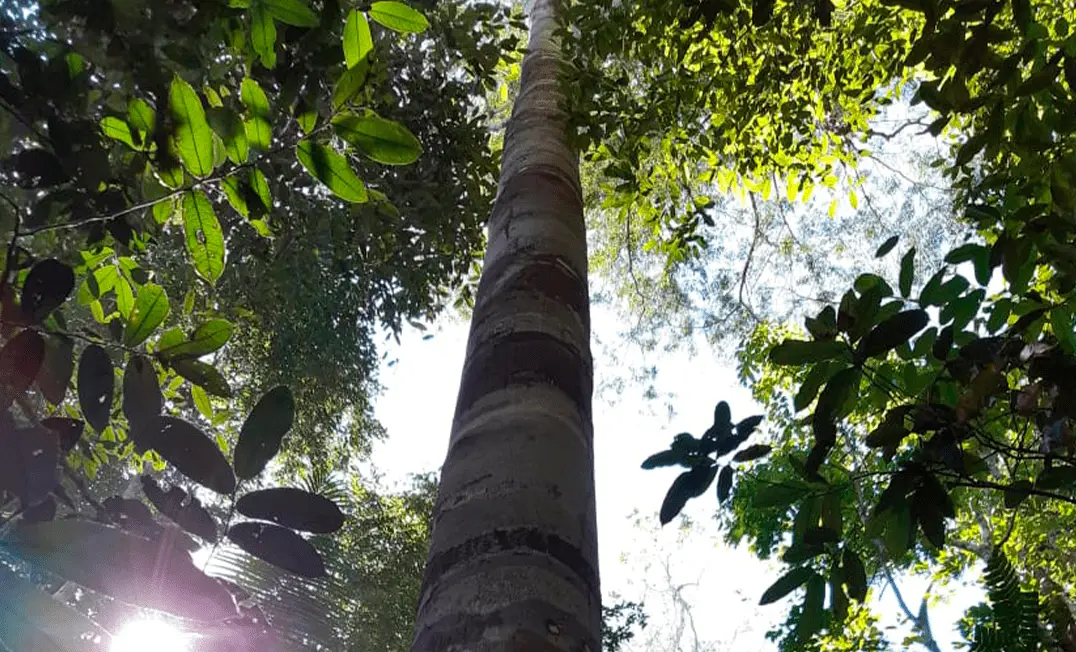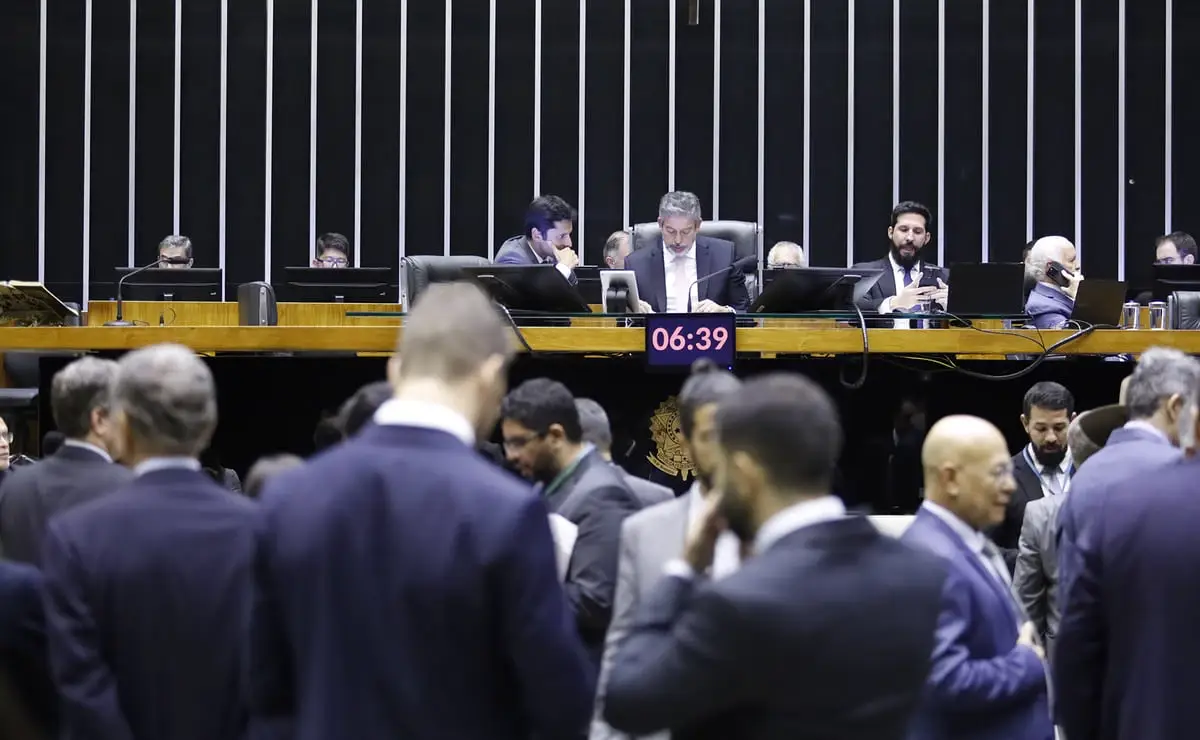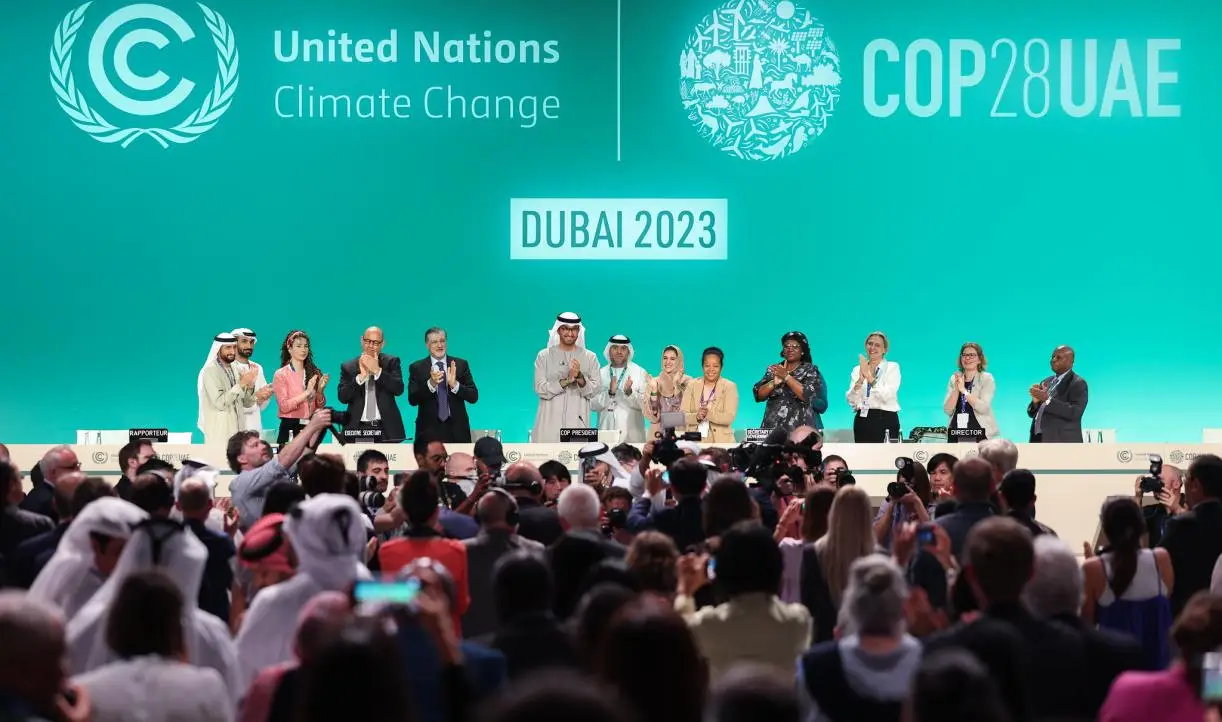
Dear friends, partners, and clients,
As we wrap up another year of hard work, we want to share with you our joy and pride for everything we have achieved together. 2023 represented a unique moment to rethink key aspects of the voluntary carbon market, in which there was a true “separation of the wheat from the chaff” aimed at consolidating carbon projects with high socio-environmental integrity.
Resilience was the keyword for this year, but also represented a window of opportunity so that we can begin 2024 stronger and continue to join forces to improve the integrity, quality, trust and scale of Nature-Based Solutions.
In Brazil, the three branches of government joined forces to strengthen the fight against climate change, and we have never been so close to establishing a Brazilian Emissions Trading System (ETS)
At the Legislative level, our Chamber of Deputies approved Bill No. 2,148/2015, which creates a Brazilian ETS. The advancement of this bill is a remarkable achievement for the decarbonization of the country’s economy and strengthens the voluntary market, as there will be interoperability between the two mechanisms. We have developed an analysis on the topic, which can be accessed through this link.
Law No. 14,590/2023 was also sanctioned. It corrects a historic obstacle in the national legislation on Forestry Concessions, now allowing the development of carbon projects in those areas. Ambipar has been actively working with the Ministry of the Environment and the Brazilian National Development Bank to assist in regulating the law, preparing feasibility models and scenarios aiming to substantially leverage forestry concessions in Brazil.
At the Executive level, Ambipar obtained a seat on the National Commission for REDD+ (Conaredd+), representing the private sector. Representing this chair means receiving recognition for the technical expertise and engagement of Ambipar in the area of Nature-Based Solutions.
Globally, the main entities and stakeholders of the Voluntary Carbon Market (VCM) have joined forces to improve integrity, trust, and scale, reflecting a positive perspective regarding the future of this climate financing mechanism.
At COP28, which took place in Dubai, we participated in several discussions and were able to interact with our international partners. We have seen global consensus on the importance of carbon markets for decarbonization and climate change mitigation. As an example, we cite the speech of the President of the European Union, Ursula von der Leyen, about the importance of these mechanisms and their connection with the protection of Biodiversity. We also developed a bulletin with news on the VCM during COP28, which can be accessed through this link.
Additionally, in a historic announcement supported by the COP28 Presidency, the Science Based Targets Initiative (SBTi), the Voluntary Carbon Markets Initiative (VCMI), the Integrity Council for the Voluntary Market (ICVCM), GHG Protocol and the We Mean Business Coalition (WMB) announced that they will join forces to establish an integrity manual that provides scientifically based methodologies for the decarbonization of production processes and the use of voluntary carbon credits to offset residual emissions. We recommend the following video, released by the entities, explaining the urgency of financing forest conservation and restoration.
On the supply side of the VCM, we watched the world’s largest certifiers, such as Verra, American Carbon Registry (ACR), Architecture for REDD+ Transactions (ART), Climate Action Reserve, Global Carbon Council and Gold Standard, announce that they will work together to establish common principles related to quantifying, verifying and maintaining carbon emissions reductions and removals in their respective methodologies. The partnership aims to ensure that each of these certifiers is aligned with the Core Carbon Principles (CCPs), a set of parameters developed to identify high-integrity voluntary carbon credits.
Besides the national and international advances in the VCM, we highlight the following market milestones in 2023
Verra, certifier of all Ambipar projects, published a consolidated methodology for forest conservation projects involving unplanned deforestation (REDD+ AUD). The new methodology aims to harmonize project baselines, providing a greater environmental integrity of these carbon credits.
After seven years, Ecosystem Marketplace updated its analysis of how companies that buy carbon credits work vs. those who do not use this strategy. The study, carried out with more than 7,000 companies, identified that, on average, companies that are part of the voluntary market invest three times more in emission reduction activities than companies that do not. In other words, the study combats the misunderstanding that companies that buy carbon credits do not have broad decarbonization strategies.
The involvement of companies with the voluntary carbon market in 2023 was also notable, even in a challenging year. According to data from Verra, the volume of carbon credits from forest conservation projects (REDD+) retired in 2023 exceeded the volume retired in the same period of the previous year by 70%, reaching 46 million tCO2e. Total retirements at Verra, considering all types of projects, reached the level of 104 million tons, the same volume observed in the equivalent period of 2022.
Internally, we maintained our focus on ensuring forest conservation and restoration projects of high quality and integrity. With a team of more than 70 people with a high technical level, we conducted 10 validations/verifications, developed six new projects, consolidated intelligence in projects focused on sustainable soil management in agriculture and livestock and in Blue Carbon, and implemented new seals and co-benefits certifications. We also innovated the financing model in ecological restoration areas, through the investment of USD 60 million in the forest restoration of the Atlantic Forest Biome within the scope of the Corridors for Life ARR Project, in partnership with AstraZeneca. Finally, we are increasingly integrated into the Ambipar Group, taking advantage of all the synergy and thousands of customers around the world to provide decarbonization solutions. We could not be on a more powerful platform to achieve our mission.
All our achievements were only possible due to the support and trust of our customers and partners, who believe in the need to significantly increase financing for forest conservation and the reforestation and restoration of degraded areas in Brazil.
In 2024, keep counting on Ambipar for a more sustainable future.
On behalf of our entire team, I wish you an extraordinary and prosperous 2024.
With kind regards
![]()
Plínio Ribeiro
Board Member of Ambipar







